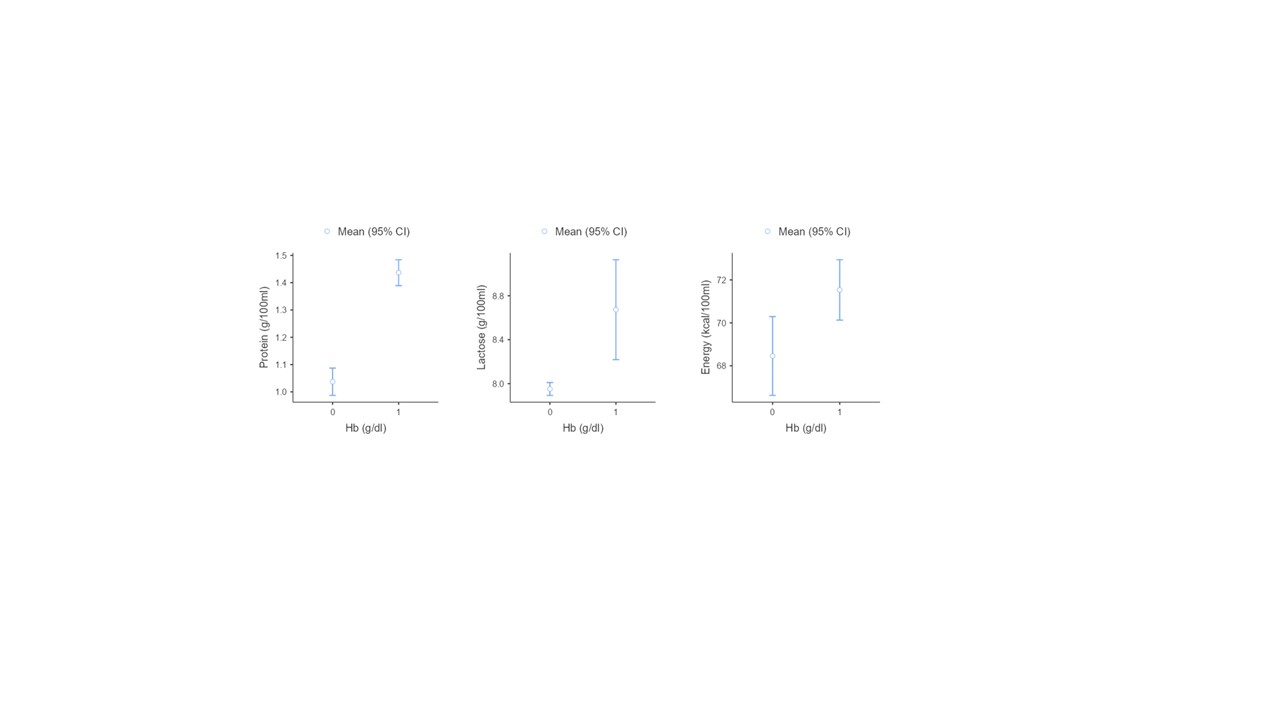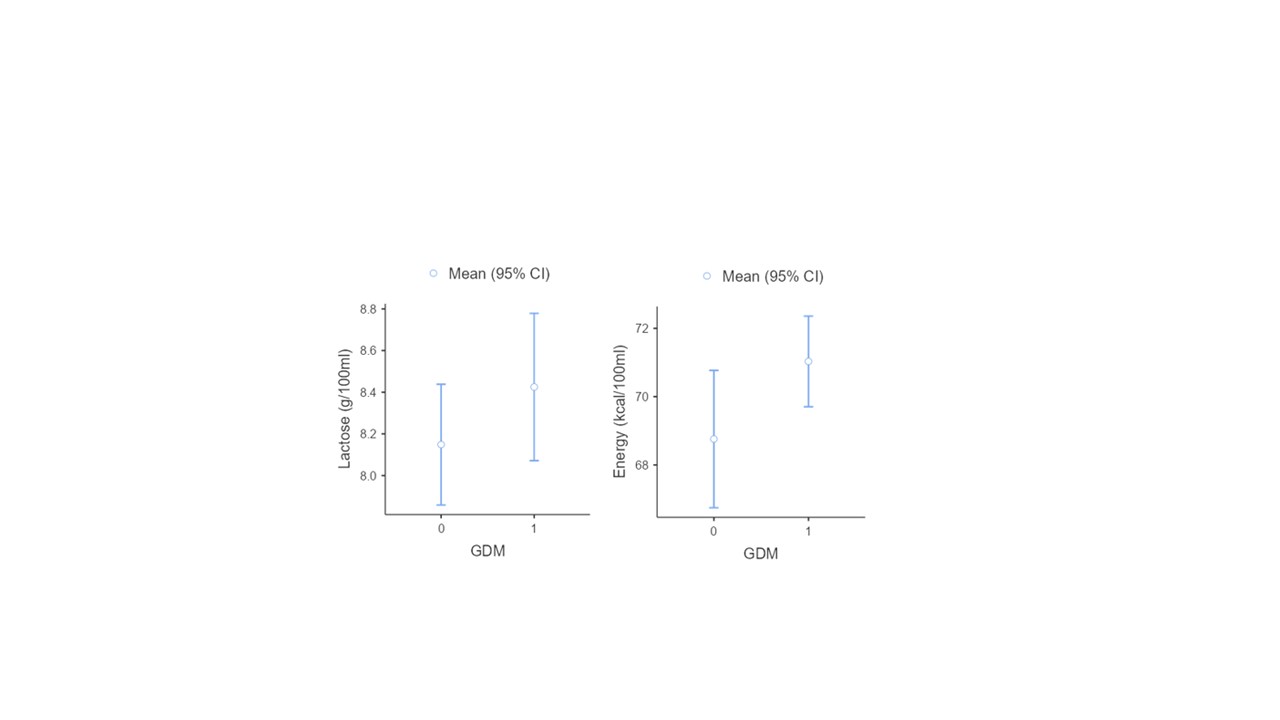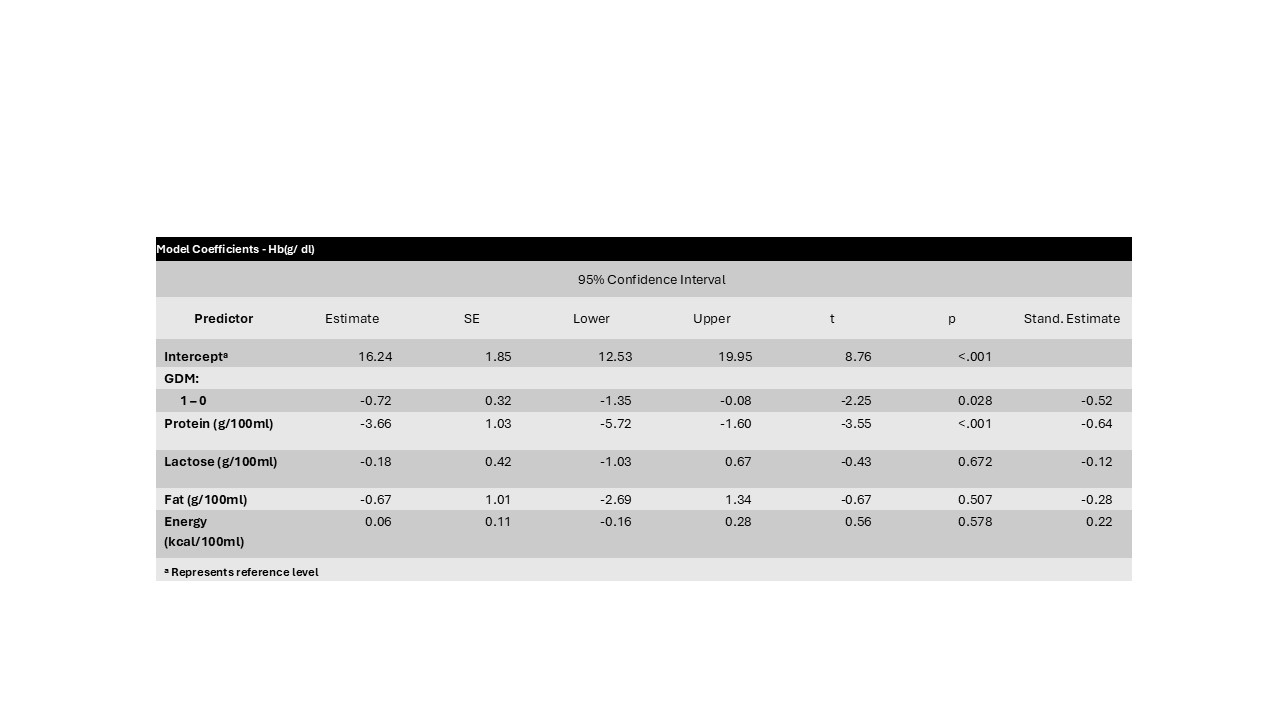Neonatal Fetal Nutrition & Metabolism 3
Session: Neonatal Fetal Nutrition & Metabolism 3
623 - The impact of gestational diabetes and anaemia on human milk macronutrient composition
Monday, April 28, 2025
7:00am - 9:15am HST
Publication Number: 623.6918
Maria Lithoxopoulou, Aristotle University of Thessaloniki, Thessaloniki, Thessaloniki, Greece; NIKOLAOS GKIOURTZIS, 4th Department of Pediatrics, General Hospital of Thessaloniki, Papageorgiou Hospital Thessaloniki, Faculty of Medicine, Aristotle University of Thessaloniki, Thessaloniki, Thessaloniki, Greece; Anastasia Karagkiozi, Aristotle University of Thessaloniki, Thessaloniki, Thessaloniki, Greece; Dimitrios Rallis, University of Ioannina, Ioannina, Ioannina, Greece; Eftychia Drogouti, papageorgiou general hospital, thessaloniki, Thessaloniki, Greece; Evgenia Babacheva, Aristotle University 2nd NICU Department, thessaloniki, Thessaloniki, Greece; Dimitra Gialamprinou, Aristotle University of Thessaloniki, Thessaloniki, Thessaloniki, Greece; Vasiliki Soubasi-Griva, Aristotle University of Thessaloniki, Papageorgiou Hospital, Thessaloniki Greece, Thessaloniki, Thessaloniki, Greece; Christos Tsakalidis, Aristotle University of Thessaloniki, Thessaloniki, Thessaloniki, Greece
- ML
Maria Lithoxopoulou, MD, PhD (she/her/hers)
Ass. Professor
Aristotle University of Thessaloniki
Thessaloniki, Thessaloniki, Greece
Presenting Author(s)
Background: Human milk composition is dependent on the stage of lactation, environmental factors, diet, and lifestyle. Maternal health influences particular nutrients in human milk like vitamins. Variations in research studies found that mothers' health conditions are important in the foetuses’ health and the quality of human milk.
Objective: The study evaluated the macronutrient composition of mature human milk received from mothers with gestational diabetes or anaemia (Hb < 12 g/dl) in comparison with healthy (non-diabetic or anaemic) mothers. The macronutrients of human milk were evaluated in terms of other demographic data.
Design/Methods: A total of 65 participants with a mean (SD) 33.3 (3.97) years of age were enrolled in a case-controlled study. Mothers with gestational diabetes (treated with insulin or with diet, n=32) gave a sample of their breast milk. Non-diabetic mothers gave breast milk as a control milk sample (n=33). The human milk was collected using a milk pump from 28th up to 78th day after delivery [45.78 (11.99) day postpartum]. After the first newborn breastfeeding of the day, mothers pumped milk and gave their sample. All samples were cooled immediately after collection and frozen until analysis with Human Milk Analyser Miris. Statistical analyses were performed, with the significance level at p< 0.05.
Results: Samples of human milk were collected from mothers with and without a history of gestational diabetes and analysed for carbohydrates (g/100ml), fat (g/100ml), true protein (g/100ml), and energy (kcal/100ml). Significant differences in the concentration of energy and lactose were found in the two groups (p < 0.01). Protein and fat did not differ significantly in human milk of mothers of the two groups (p=0.074 and 0.08 accordingly). In addition, statistically significant differences were found between anaemic mothers and non-anaemic mothers in protein (p=0.002), lactose and energy (p < 0.001), but not in fat concentration (p=0.07). Finally, it was found that mother’s Hb levels combined with the presence of gestational diabetes have a significant influence on protein concentration in breast milk (p < 0.001), but not in other macronutrients and energy levels.
Conclusion(s): Nutritional composition of human milk is dependent on mothers' health. The differences might vary in all macronutrients and are dependent not only on the mother’s diet and mother’s body weight and BMI but on the mothers’ health as gestational diabetes and anaemia.
Human Milk Macronutrients and Anaemia in mother

Macronutrients in human milk in gestational diabetic mothers

Macronutrients in human milk in diabetic mothers with anaemia


